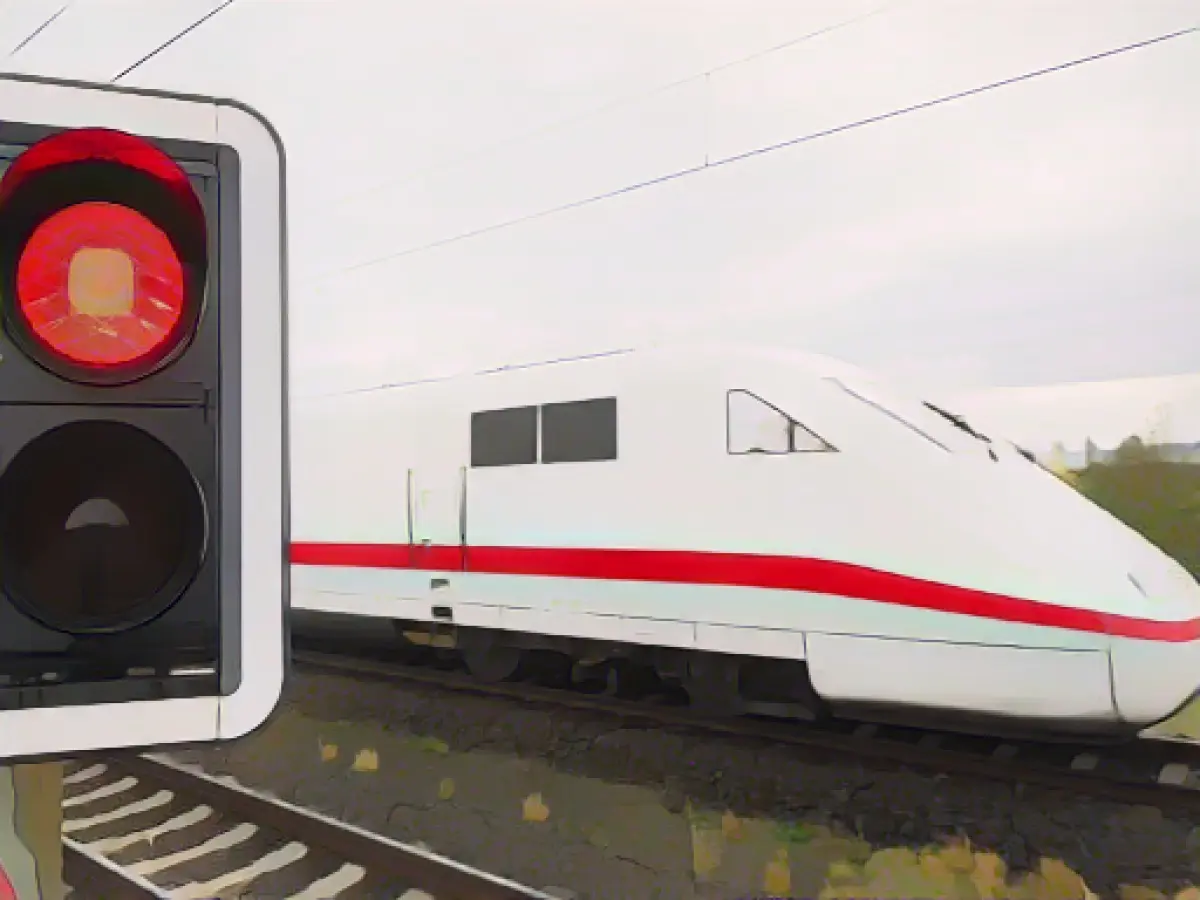GDL warning strike - what passengers should do now
The German Train Drivers' Union (GDL) is increasing the pressure in the wage dispute with Deutsche Bahn: it is calling a nationwide warning strike for 20 hours from this Wednesday evening. Between 10 p.m. on Wednesday and 6 p.m. on Thursday, there will be hardly any rail traffic. What the dispute is about and how passengers can best prepare for the strike:
Which services are affected?
According to Deutsche Bahn, the warning strike will lead to far-reaching restrictions for all types of rail transport - long-distance, regional and freight services. According to the company, more than 80 percent of ICE and IC trains will be canceled. "Experience has shown that there will also be massive restrictions on regional services," said a Deutsche Bahn spokesperson on Wednesday. "We also expect that trains will not be able to run at all in some regions."
Which regions are affected?
Deutsche Bahn is not providing any specific details. Experience has shown that many employees are organized with the GDL, particularly in the eastern German states. In many places, regional services are therefore likely to be suspended. The GDL also has many members in Stuttgart and Frankfurt. In both cities, suburban rail services are likely to be hit hard. In other regions, such as Hesse or Rhineland-Palatinate, trains could run at very limited intervals. In general, Deutsche Bahn is calling on passengers to avoid train journeys altogether during the warning strike if possible.
When does it start?
The official start of the warning strike is at 10 pm this Wednesday. However, passengers must be prepared for train cancellations in the hours beforehand. Some connections will have to be removed from the timetable beforehand, the railroad company announced. This is the only way to ensure that the trains do not end up stopping on empty tracks and that they are quickly back where they are needed after the strike.
According to the GDL, the industrial action will last until Thursday at 6 pm. However, it is likely to be another few hours before traffic is running again without restrictions. According to Deutsche Bahn, the aim is for all rail services to be running again without restrictions by the start of operations early on Friday morning.
Where can I find out about my train?
Deutsche Bahn has drawn up an emergency timetable, which has been available on the Group's digital channels since midday on Wednesday. This means that you can find out whether a long-distance or regional train is running or not via the Bahn app or the website. Deutsche Bahn has also set up a telephone number for individual information (08000-996633).
What happens to my ticket?
If you have booked a ticket for Wednesday or Thursday, you can also use it at a later date. Deutsche Bahn has canceled the train connection. "The ticket is valid for the journey to the original destination, even if the route is changed," it said. Seat reservations can be canceled free of charge. It is also possible to bring the journey forward during the course of Wednesday. "In this case, we recommend starting your journey early in the day to ensure that you arrive at your destination before the strike begins at 10 p.m.," the rail company said.
Why is the GDL on strike?
The warning strike announcement came as a surprise on Tuesday. At the first round of negotiations last Thursday, both sides had agreed on a weekly negotiation schedule. Following the talks, GDL boss Claus Weselsky saw this as the first success of the negotiations. There was no talk of industrial action afterwards. "However, the companies have apparently misunderstood the GDL's concession, perhaps even interpreting it as weakness," the union announced on Tuesday.
The GDL repeatedly refers to its core demand in the wage dispute as justification: the reduction of working hours for shift workers from 38 to 35 hours with full wage compensation. Deutsche Bahn did not address this demand in its initial offer.
The union is also demanding, among other things, an increase of 555 euros per month and an inflation compensation bonus. Deutsche Bahn had offered eleven percent higher wages for a term of 32 months as well as the inflation compensation bonus. Both sides were supposed to meet again this Thursday for negotiations. Following the warning strike announcement, Deutsche Bahn canceled the talks.
- Due to the GDL's nationwide warning strike, tariffs for rail travel are likely to increase significantly during the affected period, as many services will be canceled or severely delayed.
- While traffic on the road may be less impacted during the strike, some commuters who typically rely on rail services for their daily commute may find themselves facing heavier traffic due to the alternative mode of transportation.
Source: www.dpa.com








